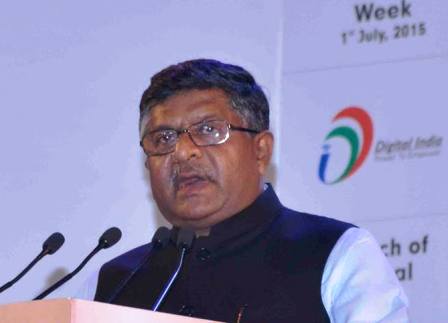
It is a setback to Parliamentary sovereignty: Prasad on SC ruling
Prasad said his government will come out with a structured response after going through the judgement.
"It is a setback to Parliamentary sovereignty," Prasad said while addressing a press conference here.
He said the government hold the judiciary with the highest respect.
A five-judge constitutional bench declared as "unconstitutional" the National Judicial Appointments Commission that replaced the collegium system of judges appointing judges in the Supreme Court and high courts.
The court said the two decades-old system of judges being appointed or transferred by a collegium - a group of five senior judges - would continue.
The constitutional bench had reserved its judgement on July 15 after hearing for r 31 days.
Petitions filed by a Supreme Court advocates' group among others had argue that the new law is unconstitutional and tramples the judiciary's independence by giving the government a major role role in the selection of judges.
Defending itselft, the government had said that the collegium system where judges appointed judges was not free from defects.
During arguments before the Constitution bench, the government's top lawyer, Attorney General Mukul Rohatgi had said it is a myth that judges alone can decide on who is the best person to be a judge.
In the new system notified in April, judges are chosen by the National Judicial Appointments Commission - a team of six members that includes the Chief Justice of India, the two most senior judges of the Supreme Court, two eminent persons, and the Law Minister.
The system stipulated that the two eminent Indians will be chosen in turn by the Chief Justice, the PM and the leader of the largest opposition party in the Lok Sabha.
For nearly two decades, judges have been appointed or transferred by a collegium - a group of five senior judges.
Support Our Journalism
We cannot do without you.. your contribution supports unbiased journalism
IBNS is not driven by any ism- not wokeism, not racism, not skewed secularism, not hyper right-wing or left liberal ideals, nor by any hardline religious beliefs or hyper nationalism. We want to serve you good old objective news, as they are. We do not judge or preach. We let people decide for themselves. We only try to present factual and well-sourced news.







